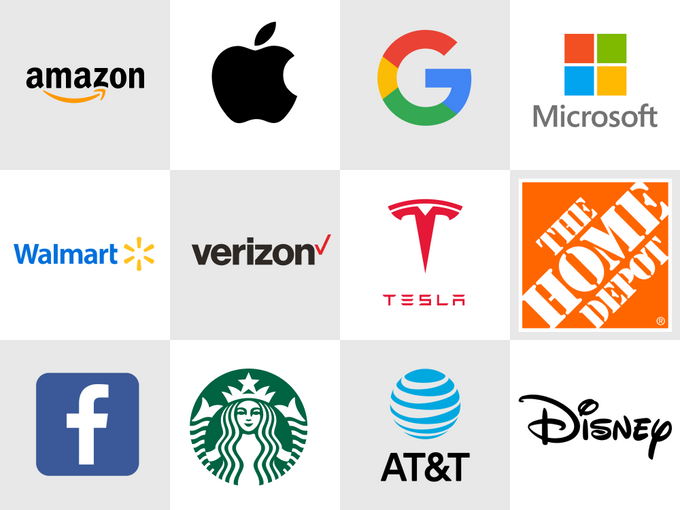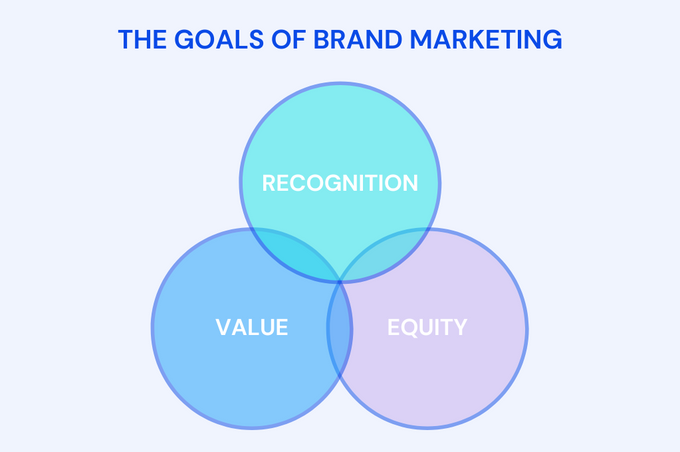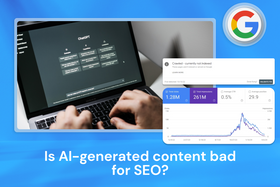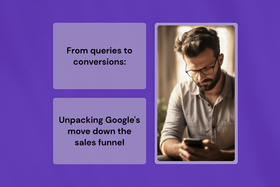Brand marketing: Outdated or crucial?
Updated June 13, 2024

AI Summary
Key takeaways
- Brand marketing remains an essential part of a comprehensive marketing strategy.
- A balance between brand and performance marketing is essential for an effective marketing strategy.
- Evolving consumer behaviors and limited data emphasize the ongoing importance and adaptability of brand marketing.
Brand marketing plays an integral role in creating awareness for a brand. According to a Havas Group survey, 77% of consumers choose brands that mirror their values. A Wordstream survey highlights that brand awareness can boost click-through rates by 2-3%.
This shows that branding and metric monitoring go hand-in-hand when evaluating your marketing performance. So, let's see how brand marketing has evolved and how you can leverage it for success.
The current brand marketing landscape
A brand represents a product, a company, or a person, and it signifies the values it possesses beyond just functionality. Brand marketing aims to educate the public about those values. Engaging social media content is a good brand marketing strategy to create awareness.
Scenario: Imagine Apple releases a pair of running shoes tomorrow, incorporating cutting-edge technology to enhance your stride. Regardless of price, would you consider buying them?
This hypothetical scenario highlights the importance of brand identity, especially since 59% of consumers favor buying new products from brands they're already loyal to.
Apple started with computers and expanded into MP3s, televisions, and more because we understand what the brand represents: innovation, inclusion, and quality.
» Find out if AI will really reduce content creation costs.
The impact of data on brand and performance marketing
In the past, marketers have said:
This encapsulates how brand marketing faced challenges due to a lack of financial accountability. However, advancements in data analytics have provided insights into measuring efforts. These include tracking:
- Website visits
- Visitors' on-site actions
- Conversions
This marked the golden age of data. With this information, businesses could evaluate the return on investment (ROI) for both performance marketing and brand marketing.
Measuring brand vs. performance marketing
Let's break down some key differences between measuring both marketing types.
Brand Marketing
- Requires the identification of unique metrics for assessing effectiveness
- Uses tools like surveys, consumer feedback, sentiment analysis, and customer retention
- Requires consistent evaluation and adjustment
Performance Marketing
- Uses measurable KPIs to show the results of advertising efforts
- Monitors elements like leads, conversions, sales, and average order value
- Customer information is limited by privacy laws
With data privacy rules limiting access to data, brand marketing is back in the spotlight since this reduced data makes it difficult to determine what is working.
How brand and performance marketing co-exist
Brand and performance marketing should work together to understand the customer journey as a unified process.
Brand marketing works to establish awareness, confidence, and value, while performance marketing seals the deal. But if performance marketing pushes sales without maintaining the branding storyline, it could create issues.
Scenario: The hypothetical Apple running shoes are advertised with a huge discount.
This contradicts Apple's no-discount policy and, therefore, weakens the brand's storyline. This would be a misuse of branding, so while performance marketing can focus on sales, it must maintain the brand's narrative.
» Google is changing the way it closes sales.
Which type of marketing is more important for businesses?
Brand marketing is effective because of the rule of seven, which suggests that a person needs to interact with a brand around seven times before deciding to purchase. This interaction moves through stages of awareness, interest, decision, and confidence.
For a new business, whether to focus on performance marketing or brand marketing depends on:
- Your financial situation: Performance marketing may be cheaper as many analytics tools are built into online platforms, like Shopify. Whereas full multi-platform brand campaigns can get pricey.
- Time available: Branding is a long-term investment that takes time to generate revenue as you rely on first generating buzz, while performance marketing yields short-term returns.
Brands must strengthen their appeal since the internet is saturated with online sellers. For example, Shopify has roughly 4 million live stores. The rule of seven might even be the rule of eight or nine now, as it takes longer for customers to filter through the abundance of information.
» Find out how brand marketing can be enhanced with video content creation
Ways to measure branding success
While it's challenging to pinpoint the direct impact of brand marketing, several indicators can help you gauge your progress. Some goals you may aim for are:
- Brand recognition: This involves how often your brand is mentioned in various spaces, like news outlets or social media comments.
- Brand value: You should understand the sentiment surrounding recognition. Some tools can identify sentiment and determine if a post is positive or negative. Successful brands will see increasing positive references over time.
- Brand equity: This refers to how sentiment translates into tangible outcomes. For instance, proper brand promotion can influence the number of visits to your website, bounce rate, and add-to-cart numbers, which are measurable metrics.
» Explore the roles of SEO vs. paid search.
3 aspects to consider when strategizing brand marketing
Every company should consider branding, but who should invest the most in it depends on several factors. Assuming financial obstacles aren't a problem, you need to question whether a strong brand can genuinely make an impact. This involves the following:
1. Understanding your competition
If you're in the tech sector competing with a giant like Apple and your brand values align with theirs, it's unlikely you'll be able to convert consumers to your product. Plus, if yours is more costly, the chances of consumers choosing you over an already-established brand are low.
However, if yours costs less and you manage to incorporate that into your brand messaging, then you could carve out a niche.
2. Emotional weight
If your product or service caters to emotional buying, like jewelry, investing in brand marketing will help get your message out. But for more functional products, like medical supplies, branding may play a less significant role.
However, there are exceptions. For instance, pain relievers can be an emotional purchase as all products are similar, and the choice often boils down to brand preference.
3. Branding sentiments
If you're a sustainable jewelry brand, emphasizing this in your brand message might be less effective if sustainability is not a top concern for your potential customers. In this case, investing heavily in branding may not be the best decision right off the bat.
Similarly, if you're a non-sustainable meat replacement brand, it might not be wise to focus heavily on branding, given that sustainability is a key decision-making factor in this market. Here, it may be wiser to focus marketing on functional attributes, like taste similarity to real meat.
» Learn how to perfect the conversion funnel.
Build a brand from your values
Ultimately, brand marketing is here to stay. It's the driving force behind creating awareness and value for a brand. Limited data availability and evolving consumer behavior present new avenues, like user-generated or personalized content, for brand marketers to reach an audience.
Understanding the importance of brand building, its impact on customer decision-making, and how it directly impacts and links with performance marketing are key to staying competitive in today's ever-changing market.








